The judicial panels set up across Nigeria to investigate the excesses of the Nigeria police have received over 2,500 petitions, investigations have revealed.
State governments set up the panels following the #ENDSARS protests by youth that rocked Nigeria in October.
Most of the petitions allege human rights violations such as extra-judicial killings, torture, extortion, harassment, sexual and gender-based violence, indiscriminate arrests, illegal detention, illegal arrests and abuse of power by personnel of the Nigerian police and other security agencies.
This is according to the CSO Police Reform Observatory survey coordinated by CLEEN Foundation and NOPRIN Foundation.
The establishment of an independent body to oversee the investigation and prosecution of reported cases of police misconduct was one of the main demands of the #ENDSARS protesters.
In October, many Nigerian youth had taken to the streets in protest against police brutality and criminality. The protesters called for sweeping police reform.
Heeding the calls of the protesters, state governments set up judicial panels to hear the cases of members of the public against police officers, including members of the now disbanded Special Anti-Robbery Squad (SARS).
Ogun, Delta, Lagos, Nasarawa, Ondo, Anambra, Plateau, Edo, Imo, Enugu, and Kaduna are some of the states where the panels are sitting.
The membership of each judicial panel is largely similar from state to state. The panels are chaired by a retired High Court judge and the members include representatives of civil society groups, police, the National Human Rights Commission, and the youth.
Breakdown
According to the report made available by investigators, 29 states and the FCT have constituted judicial panels of inquiry as of December 15.
They include Abia, Adamawa, Akwa Ibom, Anambra, Bauchi, Bayelsa, Benue, Cross River, Delta, Ebonyi, Edo, Ekiti, Enugu, Gombe, Imo, Kaduna, Kastina, Kogi, Kwara, Lagos, Nasarawa, Niger, Ogun, Ondo, Oyo, Osun, Plateau, Rivers, Taraba and FCT Abuja.
However, Jigawa, Kano, Kebbi, Sokoto and Zamfara states in the North-west geopolitical zone are yet to constitute any panel.
The same applies to Borno and Yobe states in the North-east geopolitical zone.
Although they have constituted the panels of inquiry, Oyo and Kogi states are yet to have their inaugural sittings.
According to the report, the judicial panels have 360 members across the 29 states where they have been established.
The South-east geopolitical zone has the highest number of members with 89 while the North-west, where only two states have constituted the panels, has the fewest with 19.
At state level, Anambra appointed the highest number of panel members which is 36, while Bayelsa has six panel members, the fewest.
“While we commend various state governments for engaging qualified professionals as members of the judicial panels, there have been questions on the competence and expertise of some members of the panels regarding the technical nature of the assignment,” the report noted.
Proceedings
The panels have held proceedings on a regular basis since their inauguration in different parts of the country, the survey said.
In Imo, Lagos, Plateau and Nasarawa states, the panels sit on a daily basis. Others hold their sittings two to three times weekly.
According to the report, in Plateau, Benue, Abia, Ekiti, Rivers, and Lagos states, some security actors refused to honour summons to appear before the panels.
“For example, in Edo State, the Commissioner of Police has refused to honour summons from the panel of inquiry to produce a police sergeant wanted by the panel. Similarly, in Taraba State, an officer verbally threatened a petitioner who appeared before the panel to present a case against the Nigeria Police Force.
“However, in Akwa Ibom state, police officers have appeared before the panel several times without hitches.
“In addition, it has been observed that funds meant for the panels have not been released in some states, thereby hampering their ability to carry out assigned duties.”
Some petitions filed before the panels across the states have also suffered undue delay as a result of lack of cooperation from the police and other security agencies, the observatory said.
“Some police officers invited by the panels have either retired or transferred out of the states, compounding the issue of participation of the officers involved.
“It has also been observed that some retired or serving security officers who are members of the panels have vested interests in some of the cases before the panels, raising issues of independence and credibility of recommendations.
“It was further observed that most panels of inquiry no longer accept petitions from members of the public, leaving several potential petitioners in limbo. This is not acceptable as the aim of the proceedings is to give families of victims and survivors an opportunity to present their cases.”
The report also identified gaps and made recommendations on how the panel can work effectively.
Gaps Identified
- The decision of most panels of inquiry to stop receiving petitions despite huge numbers of potential petitioners who have been shut out of the proceedings.
- Adjournments based on improper service of summons and processes.
- Absence or unpreparedness of petitioners, respondents or their counsel.
- Reliance on legal technicalities to the disadvantage of the petitioners.
- Absence of legal representation as most petitioners are not well informed about the pro-bono legal services provided by the Nigerian Bar Association across the states.
- Security actors (police and military personnel) not honouring the invitation of the panel.
- Most panels of inquiry are attending to few cases daily.
- There is distrust and suspicion among families of victims and survivors of extra-judicial killings and police brutality regarding the extent to which the panels of inquiry can dispense justice and the possibility of the government acting on the recommendations.
- Although the Nigeria Police Force has withdrawn the suit against the Judicial Panels of Inquiry, there are legal issues yet to be addressed regarding the powers of the panels and enforcement of their recommendations and decisions.
8.0. Recommendations
- The Judicial Panels of Inquiry should focus more on facts and evidence presented before it rather than dwelling on legal technicalities several petitioners do not understand very well.
- The Nigerian Bar Association should intensify efforts in sensitizing the public about the free legal representation available to indigent petitioners.
- Uncooperative police and military officers should be subpoenaed to appear before the panel to respond to issues involving them.
- The panel of inquiry should allow more citizens to file petitions before them because justice delayed is justice denied.
- Panels should dedicate a block of sittings weekly to enable them hear and adjudicate on as many cases as possible.
- The panels of inquiry should consider the use of technology in the filing of petitions and receiving of evidence to reduce the potential impact of Covid-19 pandemic on their proceedings.
- The Attorney-General and Minister of Justice should provide clarity on the legal status, powers and the enforcement of the recommendations of the panels by the government.


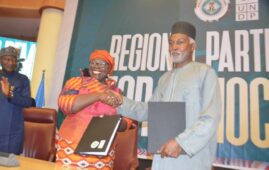

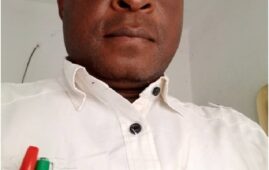
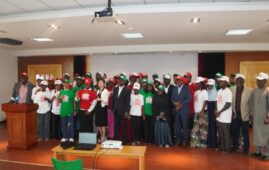
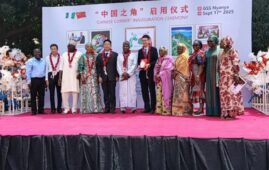
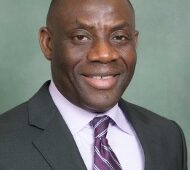
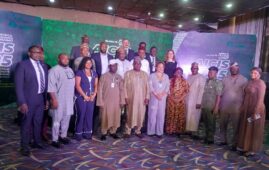


Leave a Comment